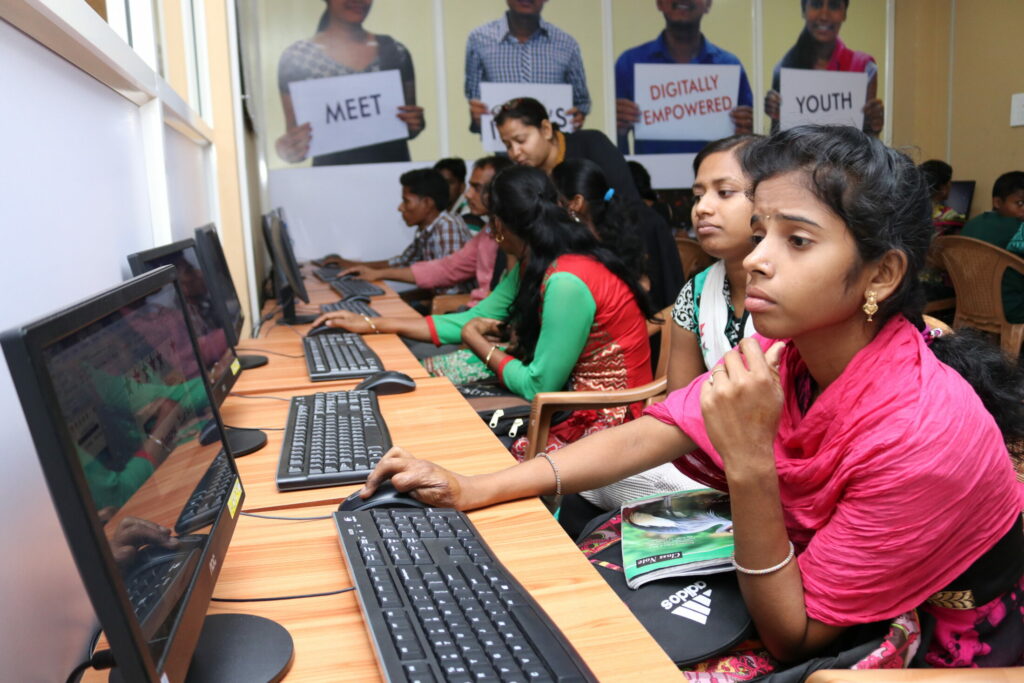Almost seven years ago, I remember Anuj Kapoor discussing Near Field Communications, Tokenization and other recent technologies. He was both enthusiastic and circumspect. Perhaps even a little too advanced for most of us to recognize the revolution in the making. Today, he is Director of a young and growing organization, Himalayan People, that aims to accelerate the development of local producers in the Himalayas and to connect them with the rest of the planet. Of course, he has retained his views and understanding of how transformative and challenging tech can be. He has also acknowledged that if hackers often belong to a niche disruptor tribe, there is nothing as exciting than a new tech that can be embedded in rural areas to transform remote communities. If this tech can be put to use in the Himalayas, it could work anywhere on the planet. Here is what the banker turned entrepreneur has to say about his team’s Himalayan dream turning into reality.
by Jean-Christophe Nothias | Editor-in-Chief, NGO Advisor
Jean-Christophe NOTHIAS (JCN): Your platform, Himalayan People, is what we label an SPO (Social Profit Organisation) currently in its start-up phase. Could you tell us what are the key concerns being tackled by the Himalayan People?
Anuj Kapoor, Himalayan People’s founder and director: With Himalayan People our goal is to bring to a wider market products and services which have originated in villages in the northern Indian Himalayas. So far we have worked with several different producers in the region to create consumer goods brands, build digital platforms and set up trade partnerships with downstream distributors, exporters, e-tailers, and retailers.
Our organisation and others like us are essentially involved in activities of validation and activities of growth. Personally the primary goal is to promote and develop these activities through relevant innovations and business practices. Our key stakeholders are the communities we work with, the people that run our operations, and the customers. The challenge is to accelerate the process of incorporating the relevant technologies and practices into our current operations, especially those linked to market access. So far we have successfully created a dynamic online community, digital brand presence, and a web platform to achieve our goals.
Increasing competitiveness by addressing supply chain issues and streamlining the route to market is the next difficulty to overcome. Some of these challenges are on account of resistance from established competitors that control customer touch points or from elements of the supply chain while others derive from a lack of adequate public infrastructure in the region. Our strategy is to work around such constraints and challenges where possible by utilising knowhow and innovation to overcome gaps that may traditionally have been beyond the area of influence of a start up. Where we feel we may have creative solutions to problems but they need deeper resources than we can deploy, we try to communicate penly with the local community, policy makers, academics, and other opinion leaders to influence the direction of change.
JCN: You have written about Distributed Ledger Technologies (DLTs) for supply chain. What do you think is the role of DLTs? And do you see other examples of SPOs trying to put the Distributed Ledger Technologies at work for the social good?
Anuj Kapoor: Like most incoming technologies and perhaps more than the average incoming invention, DLTs, especially Public Blockchain, is at a very volatile and high-risk phase in its evolution. This can seem attractive to people for the potential high returns it can yield to early adopters but that comes with high financial and regulatory risks. Currently in the Blockchain space there is still considerable work that needs to be done at the deep tech level. Scalability, durability of the architecture and some sort of consensus on which avatar of scaling solution should come out on top are still open questions. Front-end development, integration with the real economy etc. are all also still pending issues. Currently in the Blockchain space we have a few mutations competing for survival, be it the original Public Blockchain for Bitcoin, the lightening and Merkel tree style scaling solutions or the Ethereum platform or Private Blockchain and tokens being built on top of some of these.
It is challenging for remote businesses working in rural areas to implement new technologies and extremely hard for them to understand associated risks. An SPO that has worked towards building a threshold level of skill in a technology, such as DLT, can step in to provide a jump-start to the ecosystem. Before considering adoption however, the SPOs themselves must ensure they have experts on their team that understand the various nuances, risks, opportunities and integration imperatives. The value an SPO brings to the system in such a case is to take that early stage risk by dabbling in the birth phase and expanding awareness and skill level in the technology. To be clear SPOs or their stakeholders are not likely to be involved with deep tech development in such a domain. They can essentially aim to be early adopters at the application layer of the technology, which still entails significant risk.
That being said, there are some transformative opportunities presented by DLTs in areas that were perhaps not the original goal. One such use case is for communities of makers who produce specialised local products. Here a DLT (even potentially a private Blockchain architecture) can reduce fakes and copycat products that corrupt the demand-supply dynamic for such products. Where establishing provenance is the only purpose of a brand, a simple authentication signature on a publicly auditable Blockchain can suffice to transform the traditional supply chain and remove the heavy costs of brand building. For products whose value derives from their provenance, publicly verifiable proof of origin can be supplied on a Blockchain. An easy to use front-end tool to authenticate the provenance would potentially be all that is required instead of the cost heavy brand building generally carried out by downstream players.
Be it Darjeeling Tea or Pashmina Shawls, Wine from Epernay or Cuban cigars a higher share of returns from sales of these products should follow for the creators. That can quite likely be achieved very efficiently using a DLT solution. I find such a use case deeply attractive with significant disruptive potential in some consumer goods value chains.
JCN: India seems to be a rising figure in the world of AI. Would you agree with that and would you say that Indian engineers will add their own twist or bias to its many developments?
Anuj Kapoor: Development of Math and logic-based systems should typically not be impacted by the cultural influences of people developing them. I would not imagine cultural context having too much of an impact on the architecture in the Blockchain space for example. With AI it seems the answer is a bit murkier given the nature of that technology and how it is developed. However, in applications of technologies such as AI or Blockchain, one could safely assume that there will be an influence of the environment within which they are applied. The UK for instance, with a deep and sophisticated financial sector has a high instance of financial technology applications of Blockchain. That suggests something similar should happen for AI and Blockchain applications being conceived in India. So, one could see several applications for social and financial inclusion of rural populations emerging from India for instance.
JCN: You are also the Himalayan People’s (Five Benches Promotions and Advisory Services Pvt. Ltd.) Director. Where do you see your next immediate Human Resources challenge? Are you looking for investors? For engineers? For small communities? For go-betweeners?
Anuj Kapoor: We are seeking expansion in both directions; improving production standards and product quality with our local partners on the one hand and expanding our use of newer tools to manage our systems and market our products on the other. We are seeking partnerships to run specific aspects of our business and also investments to address these challenges.
Visit Himalayan People’s website: https://himalayanpeople.com/
Himalayan People’s Facebook page: www.facebook.com/himalayanpeople
Anuj Kapoor’s Linkedin: https://www.linkedin.com/in/anuj-kapoor01/
More details on the supply chain deployment use case can be found here: https://medium.com/datadriveninvestor/there-is-no-fake-darjeeling-tea-on-the-Blockchain-21d33af8eb2f


